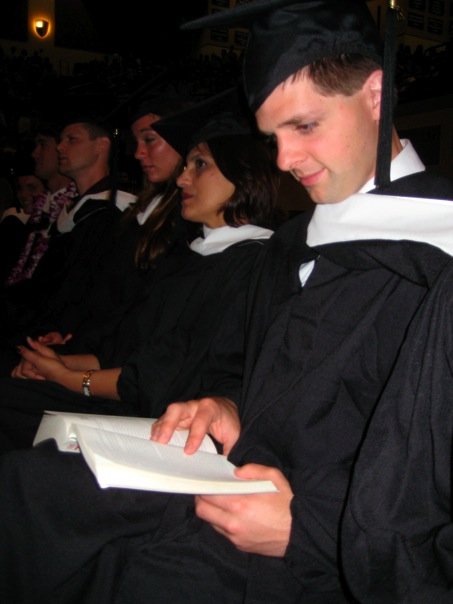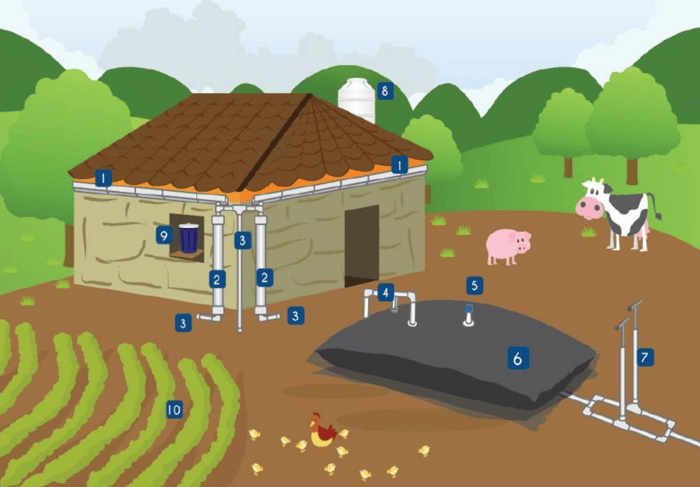Kroc School Alumnus Wilco Otte Reflects on a Global Career Focused on Sustainability

Kroc School Alumnus Wilco Otte Reflects on a Global Career Focused on Sustainability
begin quoteThe Kroc School is a very diverse place, and through your time in and out of the classroom, that’s where you learn to understand one another, what your differences are, and how to overcome those differences.

Wilco at Kroc School graduation in 2009.
The Kroc School team loves keeping in touch with its alumni and hearing about their recent efforts to shape more peaceful and just societies. In July, we connected with Wilco Otte, who came to the Kroc School from the Netherlands in 2008, believing a Master’s degree would propel his career on the global stage. Over the last decade, that has certainly proven to be true.
Below are a few excerpts from that conversation.
Wilco, thanks for speaking with us. It looks like your professional life has been keeping you quite busy. At this point, what do you consider the highlights of your career?
Before I joined the Kroc School, I was at MVO Netherlands, focused on Corporate Social Responsibility in their international department, as well as a youth delegate to the United Nations for the Netherlands. I wanted to keep learning and keep growing, so I looked into Master’s programs abroad. For me, a key part of why I chose the Kroc School was because it was a small program with only 15 students at the time, and there was the opportunity for a full scholarship.
After graduating from the Kroc School, I started working for the European Parliament as a Policy and Political Advisor in Belgium focused on environmental issues and conflict resolution. I did that for a year, then wanted to gain even more skills in strategy consulting and number-crunching. In my opinion, it's important to understand numbers and figures as a way of getting to know the material better, and to better be able to develop solutions.
So, around that time, I also started advising NGOs on their fundraising strategy. That led me to work as a Project Manager and Coordinator with a large NGO in Europe called War Child, leading their effort in Colombia. Through that consulting role, I worked with Deloitte as a partner, and that experience led to an invitation: Deloitte asked me if wanted to continue my career in LATAM as a Senior Consultant — I was really enjoying the work, so I stayed on with Deloitte for three years.
Eventually, I wanted to start a business for myself focused on the three pillars of my career (strategy, innovation, sustainability). I launched a venture with a partner, but for various reasons it didn’t work out, so I moved back to Europe and ended up securing my current role as Global Sustainability Director with Wavin, an organization with 13,000 employees, plants in 40-45 different countries across the world, and we are commercially active in 120 countries globally for building and infrastructure. I'm now in the process of creating six programs with Wavin: circular economy, environmental impact, climate change adaptation, social inclusion, (including social projects where I have invested $1.3 million in social projects like self-sustaining houses), reporting, and public affairs.
Life brings you to certain roles and opportunities. I made the choice not to work at government or NGO because in my experience, it's too slow and not pragmatic. The process-making is too long to get somewhere, and I like to see results. There are very few people in my Kroc School cohort who ended up at a large organization in the private sector — the majority are in the public field or the NGO sector. To each their own.
What are a few key skills and/or lessons you gained during your time at the Kroc School?
I developed a high capacity for reading very quickly, I improved my English, and most valuable of all, I came to understand different cultures better than I had before. The Kroc School is a very diverse place, and through your time in and out of the classroom, that’s where you learn to understand one another, what your differences are, and how to overcome those differences.
I took a course called Environmental Justice and Peace and Conflict Resolution, and it was one of the most brilliant classes I've ever taken. I was interested in doing more work in water quality and management, and it was for that reason that I wrote my thesis on the "plastic soup", which is a collection of plastic waste in the Pacific Ocean now bigger than France, Germany and Spain combined. As part of that, I learned a lot about the different kinds of plastic, and the lifespans of soft vs. hard plastic as well as how they can be recycled, and that knowledge has helped me quite a bit throughout my career in sustainability.
How has a master's degree helped you in your career? What edge does it give you?
I believe it's beneficial to do a Bachelor's degree in Country X and a Master's Degree in Country Y, outside of your own country. It gives you tremendously valuable insight into your life and the lives of others, and that proved true in my experience at the Kroc School. Knowing yourself and knowing how to work with others from other backgrounds is a critical life lesson that helps you no matter where you go or what organization you work for.
What's one cool thing you can share about the peacebuilding and changemaking you've done?

One of Wilco's current projects with Wavin is a self-supporting house — this image shows the sustainable water system.
I do a LOT of cool projects. From a technical innovation perspective, the project I'm working on currently in Central America is creating this self-supporting housing project — it’s all about giving poor families a home where they can produce their own electricity, their own clean drinking water, produce their own crops, etc., and that helps to ensure those families don't have to go to large cities where they would probably end up in slums.
One social project I like — I do investments in different neighboring villages and cities relatively close to our plants, and we do social projects with them such as offering education to children or supporting the people working in our plants. This is an annual investment of $1-1.5 million.
We’re also implementing cutting-edge technologies in plants so that we're polluting even less in our production. I also meet interesting and inspiring people who I can share ideas with whether that's in business, public affairs, etc., and I can discuss important topics that impact our world such as CO2 taxation and key negotiations that impact sustainability.
How would you describe your time at the Kroc School?
I really enjoyed it. From a content perspective, I gained some critical skills in conflict resolution. The different practitioners were incredible. From the cohort perspective, I created a strong bond with my peers. And don’t forget, the Kroc School is in San Diego, so the weather was nice and there's a beach nearby. What’s not to love?
What advice do you have for prospective peacebuilders and changemakers today who are considering a Master's program with the Kroc School?
Each step of your career is a decision that you need to make for yourself. At the end of the day, just follow your gut, and make sure you have alignment with your heart and soul.
Ready to advance as a global changemaker? Learn more about the Kroc School’s master’s programs.
Contact:
Justin Prugh
jprugh@sandiego.edu
(619) 260-7573

About the Author
The Joan B. Kroc School of Peace Studies (Kroc School) at the University of San Diego is the global hub for peacebuilding and social innovation. Founded in 2007, the Kroc School equips the next generation of innovative changemakers to shape more peaceful and just societies. We offer master's degrees in peace and justice, social innovation, humanitarian action, conflict management and resolution, and a dual degree in peace and law — programs that have attracted diverse and dynamic students from more than 50 countries. In addition to our graduate programs, the Kroc School is home to the Kroc Institute for Peace and Justice (Kroc IPJ). Founded in 2001, the Institute supports positive change beyond the classroom. Through groundbreaking research, experiential learning, and forward-thinking programs, the Kroc School and Kroc IPJ are shaping a future in which peaceful co-existence is the new normal.





